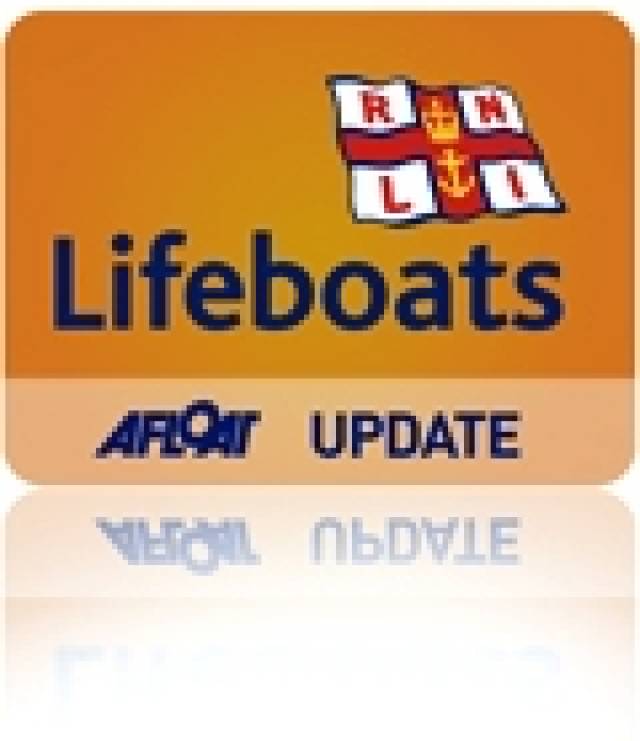#RNLI - Skerries RNLI was busy over the Bank Holiday weekend with callouts on Saturday 1 and Monday 3 August - plus a visit to Rush for the annual blessing of the boat in between.
Shortly after midnight on Saturday, Skerries RNLI volunteers launched their Atlantic 85 inshore lifeboat Louis Simson after the coastguard received a distress call from a razor fishing boat.
The boat's engine had failed and they were adrift near the Cardy Rocks north of Balbriggan, with a Force 1 to 2 northerly wind blowing at the time.
The lifeboat - helmed by Conor Walsh and crewed by Peter Kennedy, Emma Wilson and Joe May - quickly located the casualty vessel, with three people on board. A tow was established and the vessel was towed back to the safety of Skerries harbour.
On Sunday afternoon (2 August) the lifeboat launched to attend a blessing of the boats ceremony in Rush Harbour.
There was also a presentation of a cheque for the very generous donation of €1,000 to Skerries RNLI from The Harbour Bar in Rush, raised through the sale of tickets for the annual Christmas hamper.
The lifeboat launched again shortly before 9pm on Monday evening with volunteer Conor Walsh at the helm and crewed by volunteers Joe May, Stephen Crowley and Emma Wilson.
Dublin Coast Guard had received reports of a surfer in difficulty off Rush beach. Skerries Coast Guard unit and coastguard helicopter Rescue 116 were also requested to join the search.
As the lifeboat was arriving on scene, the helicopter crew had located the casualty and were winching him into the helicopter. The lifeboat carried out a search of the area to ensure there were no other casualties.
The surfers’ board was located and taken on board the lifeboat to prevent a hazard to any other vessels. At the time there was a Force 5 to 6 south to south-westerly wind.
Speaking after the callout, Skerries RNLI lifeboat operations manager Niall McGrotty said: "We’re very proud of our volunteers and all their hard work. Some of them went to sea numerous times this weekend and we appreciate their dedication to saving lives."
































































